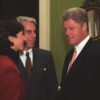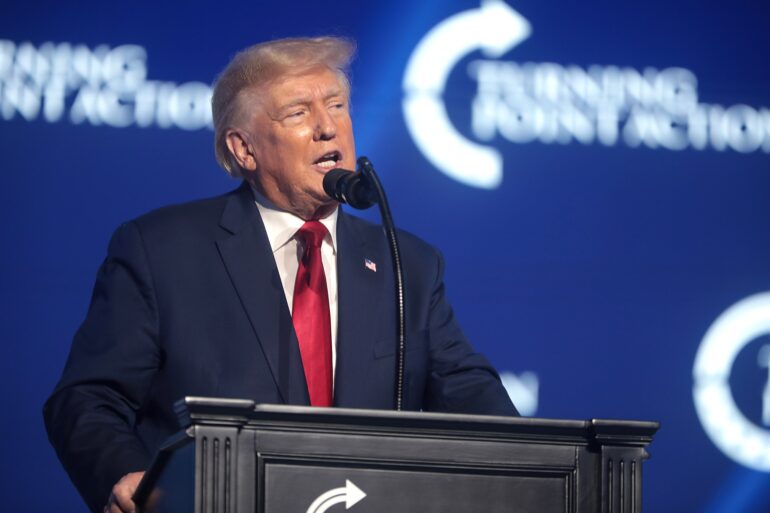President Donald J. Trump on Monday reportedly unveiled his latest bid to revive American industries, announcing a sweeping 100 percent tariff on movies made outside the United States.
“Our movie making business has been stolen from the United States of America, by other Countries, just like stealing ‘candy from a baby,’” the president declared in a post on his Truth Social platform.
The decision marks one of the boldest attempts yet to reclaim cultural and economic ground in an industry that has long been a symbol of American creativity, but which critics say has been hollowed out by foreign subsidies and offshoring.
Trump has previously warned that Hollywood’s reliance on overseas locations and partnerships undermines American workers and weakens a central pillar of U.S. influence.
While the White House has not specified when the tariff will take effect, nor how the administration will determine the value of a film, the message from Trump was unambiguous: the era of outsourcing American culture is over.
Questions remain about how the policy will apply to productions partly filmed abroad, but Trump’s supporters see the measure as long overdue.
The president first threatened to impose such levies in May, signaling frustration at the entertainment industry’s global drift.
He has frequently framed the issue not simply as economic but as cultural, portraying Hollywood as increasingly detached from the concerns of everyday Americans and too willing to rely on foreign dollars and foreign markets.
Trump’s announcement on Monday also included fresh criticism of California’s Democratic leadership, and in particular Governor Gavin Newsom, who has repeatedly sparred with the president over economic policy. “Weak” and “incompetent,” Trump said of Newsom, pointing to the governor’s failure to prevent the decline of California’s once-unrivaled film industry.
California Democrats, for their part, have pushed back against the president’s proposal, warning that tariffs on foreign films would ultimately drive up costs for American consumers.
Yet Trump and his allies argue that any short-term costs pale in comparison to the long-term benefits of restoring America’s dominance in a sector it pioneered.
Trump’s decision comes as part of a broader pattern: a willingness to confront industries and political leaders he believes have betrayed American workers.
Just as he has moved aggressively to protect steel, aluminum, and agriculture from foreign competition, Trump is now making clear that the entertainment business will no longer be exempt.
For many conservatives, the tariff signals both economic patriotism and cultural pushback against a Hollywood establishment they see as beholden to global interests.
It also puts Democrats like Newsom on the defensive, forcing them to explain why defending foreign-made films should take precedence over protecting American jobs.
As Trump put it, “Our movie making business has been stolen.” His move, allies say, is an attempt not only to reclaim it but to remind Americans that cultural power, like economic power, is strongest when it is homegrown.
[READ MORE: White House Brushes Off Speculation Over Hegseth’s Gathering of Military Brass]





